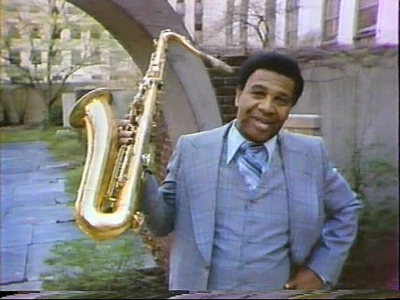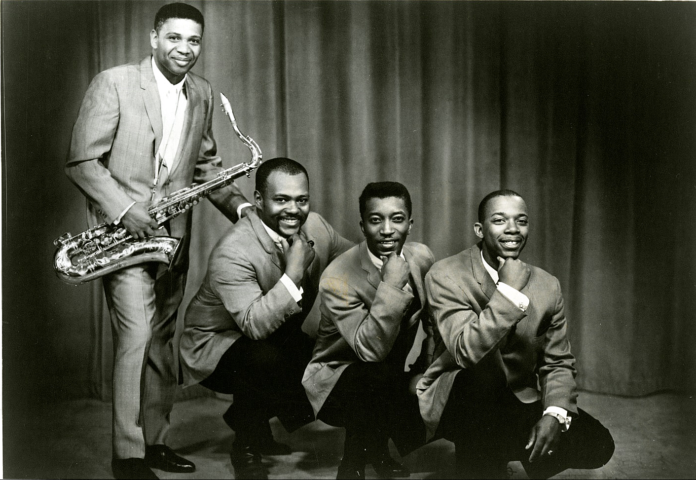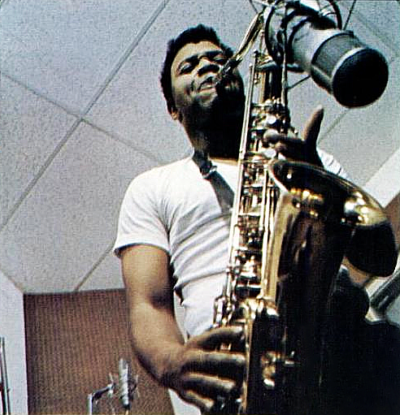Aging is a biatch especially when it comes to memory! Funny how yesteryear remembrances always seem to come in so incredibly vivid but you can’t recall what you had for breakfast! Musically speaking, growing up during the 1960s in Detroit was just wonderful. I was out with a friend last week, and the song Shotgun by Jr. Walker and the All Stars played on the radio. All of a sudden, my foggy memory transported me back to my sweet youth.
The year was 1965. It was a hot summer night in the Motor City. My friends and I were sitting on my porch swatting mosquitos, drinking grape Kool-Aid out mason jars, and listening to music that was blaring out of my neighbor Mrs. Broadus’ screen door. Why did I suddenly remember Mrs. Broadus, who was famous for popping her gum, an art we all tried hard to imitate? It was card game night at her house. The night air reeked of Kool cigarettes. We could hear adults laughing, the clinking of glasses, and folks failing miserably as they attempted to sing along to Shotgun.
But who was Jr. Walker?
Whenever I think of Hitsville, The Temptations, The Supremes, and Marvin Gaye comes to mind but Jr. Walker was also a hitmaker for their camp. Jr. was born, Autry DeWalt Mixon on June 14, 1931 in Blytheville, Arkansas. The performer’s birth name was originally reported as Oscar G. Mixon but was later changed. There was speculation that Jr.’s mother was actually trying to remain hidden from her husband which accounts for the name change. Down the line, there would be yet another name change for Autry, whose surname was changed to Walker by his stepdad. He was also given the nickname Jr., and this stuck with him for the rest of his life.
As a teen, the jukebox hitmaker enjoyed hanging out at jazz clubs. He would sit in awe of the popular sax players of the times who performed at the venues he frequented. While still in high school, Jr. formed his first musical group called The Jumping Jacks. The band performed at clubs throughout the city. Later, Jr. joined a group called Stix Nix.
A move to the breakfast cereal capitol, Battle Creek, Michigan in the early 1960s, would prove to be fortuitous in that Jr. would form his legendary group, the All Stars. Original members of the group included Jr.’s old friend, Willie Woods on guitar, Victor Thomas on organ, and James Graves on drums. The four men called themselves the All Stars, supposedly after a fan yelled out that every player was a star in this band.
With Jr. Walker on sax as the group’s lead, the All Stars were discovered in 1962 by Johnny Bristol, who recorded the hit song, Hang on In There Baby. The group was performing at a popular R&B haunt in Battle Creek when Bristol introduced them to Harvey Fuqua, a former R&B recording artist with the popular 1950s group, the Moonglows. Fuqua was president of both the Tri-Phi and Harvey labels in Detroit; his wife owned Anna Records, and his brother-in-law, Berry Gordy, was the head of Motown. Jr. and his All Stars were snatched up by Fuqua and began recording for the Harvey label. Over the next year, the bandmembers recorded a few singles for Hitsville but none were hits.

Money woes forced Fuqua to fold his recording labels and to pivot toward producing and becoming a talent scout for Gordy. Jr. Walker and the All Stars did not have a contract with Motown but with Fuqua’s recommendation, they finally secured one, but with the newly formed Soul records. When Gordy started his new R&B label, Jr. and his group launched it.
There were lots of dance crazes in the 1960s. In 1965, Jr. was playing a gig at a Benton Harbor, Michigan club. He spotted a pair of teens doing a freeform dance where they would stagger as if they had been shot. The visual of the teens dancing remained with him. When Jr. returned to his hotel room, he wrote a tune and named it Shotgun. When it was time to record the song, the session singer failed to show up, so Jr. made his debut as a vocalist on the recording. The performer did not think his vocals would make the cut but surprisingly, Gordy liked what he heard.
Shotgun catapulted to the #1 spot on the R&B charts and on Billboards Hot 100, it reached #4 selling over a million copies. The band’s Top 10 R&B singles include Shake And Fingerpop, (I’m A) Road Runner, and How Sweet It Is (To Be Loved By You).
Later, the bandmates were handed a new recipe by their Battle Creek buddy Bristol: What Does It Take (To Win Your Love). Walker was hesitant at first about recording the song but the outcome was the band’s biggest pop crossover since Shotgun. The song also paved the way for an equally attractive sequence of hits: These Eyes, Gotta Hold Onto This Feeling, Do You See My Love (For You Growing), and Take Me Girl, I’m Ready.
As the 1970s rolled around, Jr. and his sax continued to do gigs working with producers like Brian Holland and Norman Whitfield. A hard-blowin’ solo on Foreigner’s Urgent in 1981 marks a chart comeback for Jr.’s signature sax, and a return to Motown yields a new album, Blow the House Down.
Jr. continued to tour into the 1990s, sometimes with his son, Autry DeWalt III, backing him on drums. After returning from a tour with the Four Tops, the Temptations, and other Motown stars, Jr. was in a very weakened state. He eventually lost the strength in his legs and never regained the ability to walk again. The man whose playing influenced a younger generation of sax blowers notably David Sanborn, Clarence Clemons, Jim Horn, Lenny Pickett (of Tower of Power) and in particular, the gospel saxophonist Vernard Johnson, lost his battle with cancer on November 23, 1995. He was 64 years old.
Jr. Walker was survived by his mother, 9 sons, 4 daughters, 22 grandchildren and 4 great-grandchildren.












